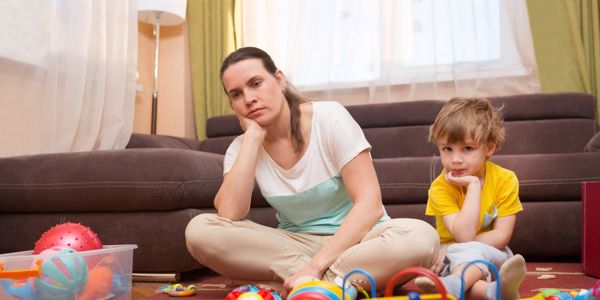As a toddler, my son Henry was fearless. He adored adventure, thrill and excitement. As soon as he could walk his favourite thing to do was play on his slide. I once caught him balancing said slide on the low wall around our garden so that it was higher!! You couldn't turn your back on him for a second because he was always seeking out the next thrill.
Just before he turned four, we took him to Disneyland Paris. He was tall for his age, so he was able to ride most of the rides, but he had a full-on meltdown when he was turned away from Space Mountain because he was too short! He rode the Tower of Terror six times back to back, and even the staff were blown away by how young he was! He just couldn't get enough. It was almost hard to keep up with him, and we planned on returning when he was tall enough so that he could get that ride on Space Mountain - except as he has grown things have dramatically changed with his confidence.
I would now describe Henry as a worrisome child, which is something I never thought I would say about him. Nothing significant happened, and there were no changes, but he now worries about everything. He has lost his confidence, and he no longer has that fearless trait, and it has come out of nowhere. We went back to Disneyland Paris and most of the rides that he previously rode, again and again, he won't even consider going on now.
He doesn't just worry about going on rides or things that go bump in the night – that kind of stuff I would expect to some degree. No, my child worries about pretty much everything right down to going to university when he is older and did I mention he is only seven!! It's been a really tough road, but I have been supporting him the best I can. If you are finding your child is a bit of a worrier, here are some tips that I follow to help Henry.
Don't Disregard Anything
It doesn't matter how ridiculous a worry sounds to me; I never disregard it. To him, at that moment, it is everything and merely passing it off as nothing would just make his feelings seem insignificant.
Don't Feed It
Although I won't just disregard his worries, I also think it's essential not to feed them either. I make sure he feels heard and as if he has someone to confide in, but then I try and diffuse it as much as possible.
Don't Tell Him Not to Worry
Telling someone who is worried about something simply not to worry is never going to work. We chat a lot about the fact that worry is an entirely normal emotion to feel, but it is merely just that and nothing more.
Don't Push Him
I know first-hand how valuable facing your fears can be, but I also know how damaging it is to push someone who isn't ready. If Henry doesn't want to do something or he is worried about something I don't push him. I will talk to him about it and gently encourage him, but I make it very clear that he is the one in control.
Don't Let Him Clam Up
Children that worry can sometimes clam up, and when this happens, it's hard to know how to help and support them. I think it's imperative for Henry to recognise when he is worrying, acknowledge it and then move on. Where possible, I encourage an open dialogue so he can talk about what's troubling him. Recently he has started using a worry journal where he writes down any worries he has. Doing this has helped him recognise when he is worrying unnecessarily and prevents a simple concern turning into anything more.
It's really hard as a parent of a worrisome child, and often you can feel helpless, but I hope if you are experiencing the same, these tips will help. Do you have any of your own tips to add?






